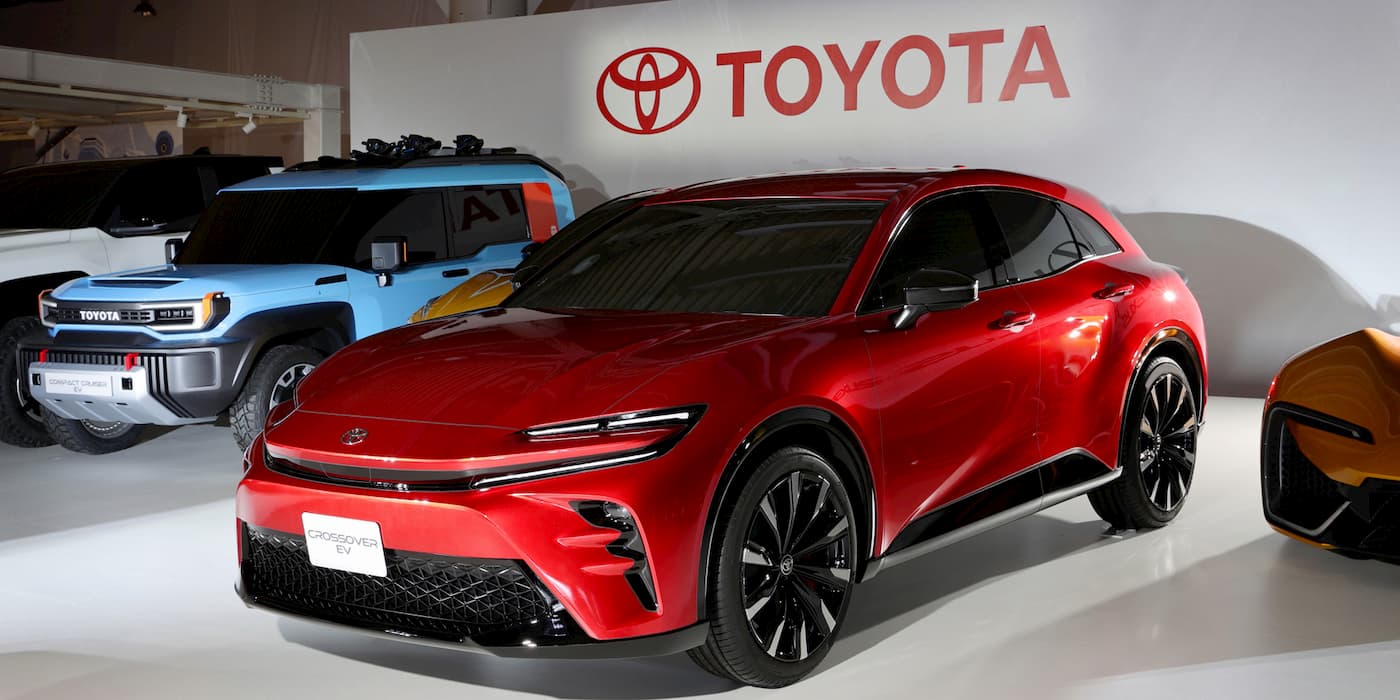
At the recent launch of its new BEV factory, Toyota vowed its next-generation electric vehicles will deliver longer range and faster charging at a lower price. The Japanese automaker now says its new EVs, due out in 2026, will feature nearly 500 miles of range.
At a technical briefing in June, Toyota revealed several new innovations, including advanced battery plans, improvements in aerodynamics, and manufacturing upgrades as it looks to boost EV sales with its next-gen electric models.
The company shared at the launch of its BEV factory, which is not an actual plant but rather “an organization dedicated to battery EVs,” that production of Toyota’s new EVs will begin in 2026.
Toyota unveiled four next-gen batteries, including advances in liquid and solid-state electrolytes. The first of which, Toyota’s Performance lithium-ion battery, will power new EVs starting in 2026, providing a nearly 500-mile (800 km) cruising range (with enhanced aerodynamics and reduced weight).
Compared to the company’s first electric model, the bZ4X, EVs powered by the Performance battery will cost 20% less with fast charging in 20 minutes or less.
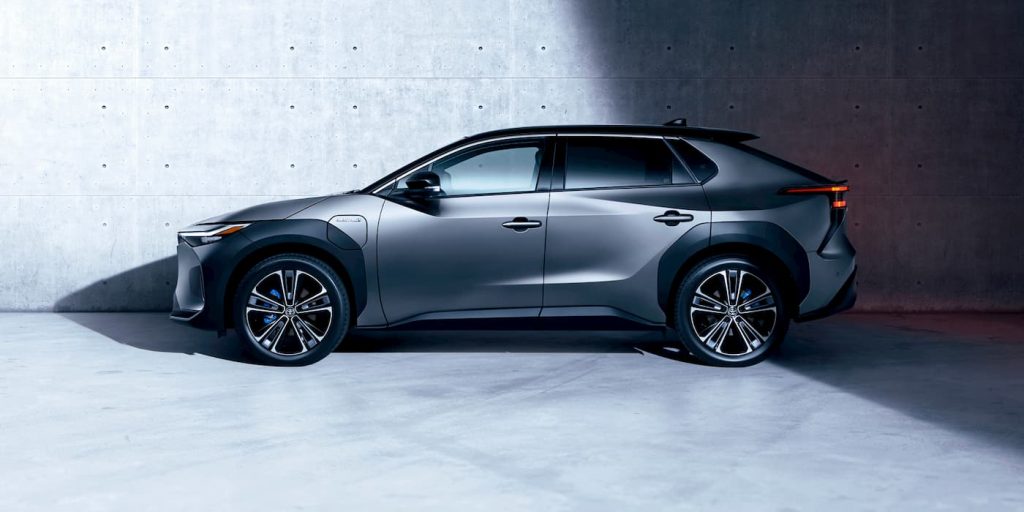
The second Popularisation Lithium Iron Phosphate battery, due out in 2026 or 2027, is focused on affordability. Toyota claims the low-cost battery will increase cruising range by 20% (roughly 375 miles) while bringing down costs by 40% (compared to the bZ4X).
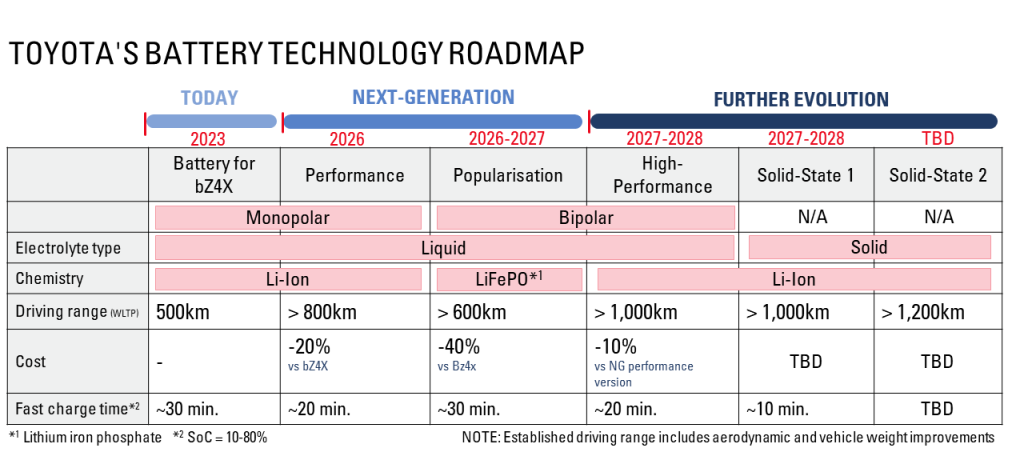
Toyota’s advanced EV battery development plans
Looking further out, Toyota is developing a high-performance battery that will further increase the cruising range to over 620 miles (1000 km).
Due out in 2027 to 2028, the battery combines a bipolar structure with Li-ion chemistry and a high nickel cathode. It’s expected to offer an additional 10% cost reduction compared to the Performance battery.
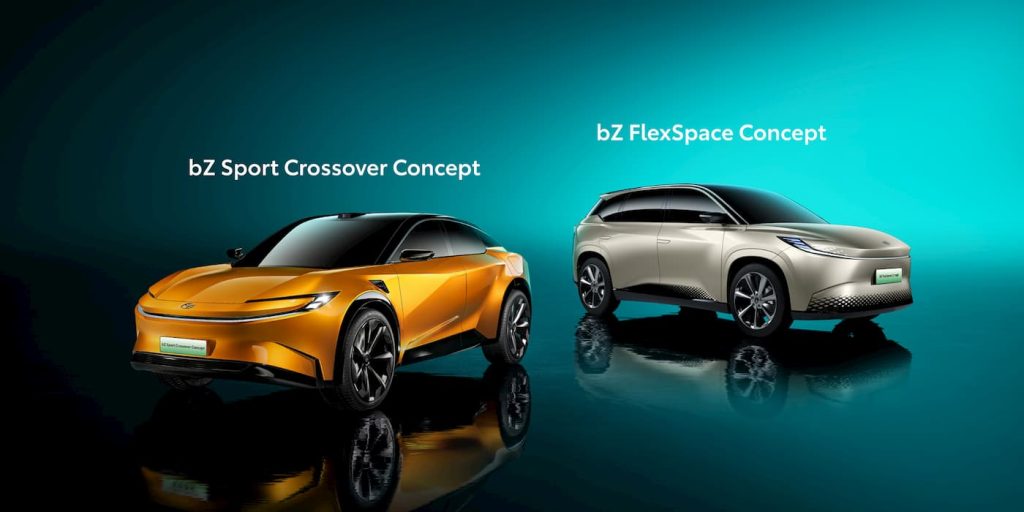
Toyota says it has reached a “breakthrough” with solid-state batteries that can be a “potential game-changer for BEVs.” The aim is to have them ready for commercial use by 2027-2028, providing roughly 620 miles range (1,000 km) and ultrafast charging in under 10 minutes.
The automaker also provided a preview of further solid-state development that aims to deliver over 745 miles (1,200 km) range.
Toyota is exploring innovations with the Space Division of Mitsubishi Heavy Industries to improve aerodynamics, such as hypersonic tech used in rockets.
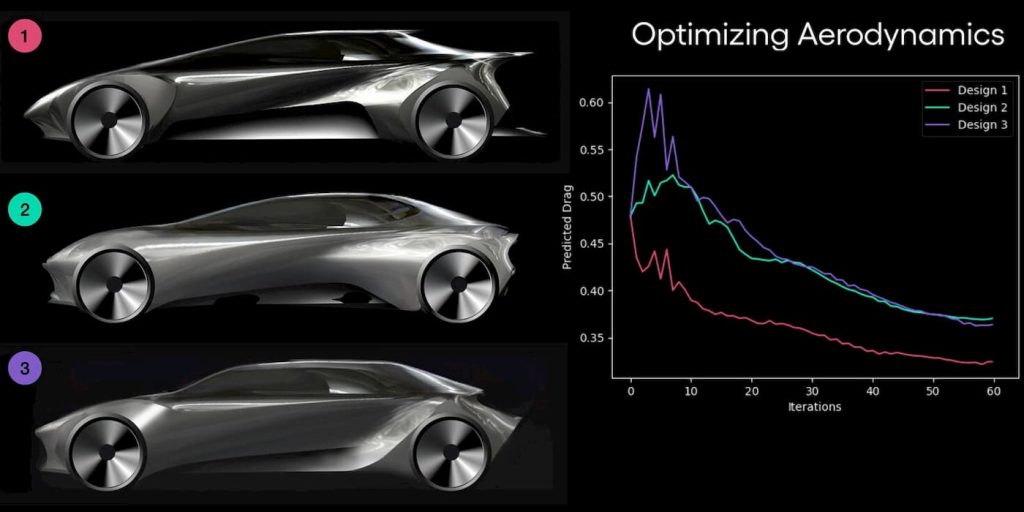
However, the company says it’s going beyond optimizing Cd ratings by focusing on CdA (Cd multiplied by the frontal area). For this reason, Toyota is developing flatter battery tech to reduce overall vehicle height.
Top comment by john
They are trying to forestall EV adoption by announcing future better products. This is an old tactic from the PC world. I doubt it will work for them Toyota really has to get busy.
The battery pack in the bZ4X is around 5.9 inches (150 mm) high. Toyota looks to reduce this to around 4.7 inches (120 mm) or even 3.9 inches (100 mm) in high-performance EVs.
Electrek’s Take
Toyota’s EV battery roadmap holds promise. But that is if Toyota can follow through with it. The Japanese automaker has made several promises in the past that have yet to come true.
Keep in mind these are concepts that are under development. The time frames and actual figures can still change ahead of launching.
Toyota claimed they would have their first solid-state battery-powered EV out in 2021, then 2022, then 2025, and now it looks to be around 2028. Call me a skeptic, but I’ll believe it when I see it.
FTC: We use income earning auto affiliate links. More.


Comments